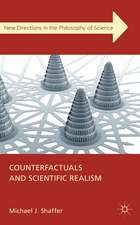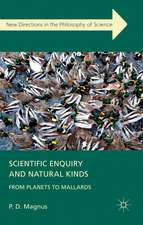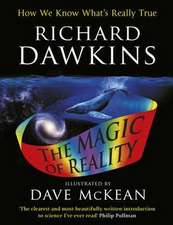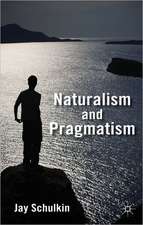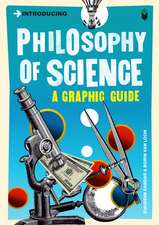Scientific Realism: A Critical Reappraisal: The Western Ontario Series in Philosophy of Science, cartea 40
Autor N. Rescheren Limba Engleză Paperback – 31 aug 1987
Din seria The Western Ontario Series in Philosophy of Science
- 15%
 Preț: 632.70 lei
Preț: 632.70 lei - 18%
 Preț: 947.35 lei
Preț: 947.35 lei - 20%
 Preț: 583.95 lei
Preț: 583.95 lei - 18%
 Preț: 952.72 lei
Preț: 952.72 lei -
 Preț: 397.76 lei
Preț: 397.76 lei - 15%
 Preț: 644.49 lei
Preț: 644.49 lei - 18%
 Preț: 950.03 lei
Preț: 950.03 lei - 18%
 Preț: 953.82 lei
Preț: 953.82 lei - 15%
 Preț: 643.34 lei
Preț: 643.34 lei - 15%
 Preț: 648.05 lei
Preț: 648.05 lei - 18%
 Preț: 943.43 lei
Preț: 943.43 lei - 15%
 Preț: 646.11 lei
Preț: 646.11 lei -
 Preț: 386.22 lei
Preț: 386.22 lei -
 Preț: 393.52 lei
Preț: 393.52 lei - 15%
 Preț: 642.18 lei
Preț: 642.18 lei - 18%
 Preț: 950.33 lei
Preț: 950.33 lei - 18%
 Preț: 949.55 lei
Preț: 949.55 lei - 18%
 Preț: 1225.31 lei
Preț: 1225.31 lei - 18%
 Preț: 952.72 lei
Preț: 952.72 lei - 18%
 Preț: 952.89 lei
Preț: 952.89 lei -
 Preț: 393.52 lei
Preț: 393.52 lei - 18%
 Preț: 956.33 lei
Preț: 956.33 lei - 18%
 Preț: 953.97 lei
Preț: 953.97 lei - 18%
 Preț: 1225.62 lei
Preț: 1225.62 lei - 15%
 Preț: 641.20 lei
Preț: 641.20 lei -
 Preț: 384.86 lei
Preț: 384.86 lei - 18%
 Preț: 953.65 lei
Preț: 953.65 lei - 18%
 Preț: 1816.25 lei
Preț: 1816.25 lei
Preț: 389.88 lei
Nou
Puncte Express: 585
Preț estimativ în valută:
74.60€ • 77.90$ • 61.60£
74.60€ • 77.90$ • 61.60£
Carte tipărită la comandă
Livrare economică 15-29 aprilie
Preluare comenzi: 021 569.72.76
Specificații
ISBN-13: 9789027725288
ISBN-10: 9027725284
Pagini: 184
Ilustrații: 184 p. 1 illus.
Dimensiuni: 155 x 235 x 10 mm
Greutate: 0.46 kg
Ediția:Softcover reprint of the original 1st ed. 1987
Editura: SPRINGER NETHERLANDS
Colecția Springer
Seria The Western Ontario Series in Philosophy of Science
Locul publicării:Dordrecht, Netherlands
ISBN-10: 9027725284
Pagini: 184
Ilustrații: 184 p. 1 illus.
Dimensiuni: 155 x 235 x 10 mm
Greutate: 0.46 kg
Ediția:Softcover reprint of the original 1st ed. 1987
Editura: SPRINGER NETHERLANDS
Colecția Springer
Seria The Western Ontario Series in Philosophy of Science
Locul publicării:Dordrecht, Netherlands
Public țintă
ResearchCuprins
One / Problems of Scientific Realism.- 1. Scientific Realism.- 2. The Problematic Character of Scientific Realism: Current Science Does Not Do the Job.- 3. Future Science Does Not Do the Job.- Two / Scientific Progress as Nonconvergent.- 1. The Exploration Model and Its Implications.- 2. Theorizing as Inductive Projection.- 3. Scientific Revolutions as Potentially Unending.- 4. Is Later Lesser?.- Three / Ideal-Science Realism.- 1. Reality is Adequately Described Only by Ideal Science, Which is Something We Do Not Have.- 2. Scientific Truth as an Idealization.- 3. Ideal-State Realism as the Only Viable Option.- Four / Against Instrumentalism: Realism and the Task of Science.- 1. Against Instrumentalism: The Descriptive Purport of Science.- 2. Realism and the Aim of Science.- 3. The Pursuit of Truth.- 4. Anti-realism and “Rigorous Empiricism”.- 5. The Price of Abandoning Realism.- Five / Schoolbook Science as a Basis for Realism.- 1. The Security/Definiteness Trade-off and the Contrast between Science and Common Sense.- 2. Schoolbook Science and “Soft” Knowledge.- 3. Schoolbook Science as a Basis for Realism.- Six / Disconnecting their Applicative Success from the Truth of Scientific Theories.- 1. Is Successful Applicability an Index of Truth?.- 2. Truth is NOT the Best Explanation of Success in Prediction and Explanation.- 3. Pragmatic Ambiguity.- 4. The Lesson.- Seven / The Anthropomorphic Character of Human Science.- 1. Scientific Relativism.- 2. The Problem of Extraterrestrial Science.- 3. The Potential Diversity of “Science”.- 4. The One-World, One-Science Argument.- 5. The Anthropomorphic Character of Human Science.- 6. Relativistic Intimations.- Eight / Evolution’s Role in the Success of Science.- 1. The Problem of Mind/Reality Coordination.- 2. TheCognitive Accessibility of Nature.- 3. A Closer Look at the Problem.- 4. “Our” Side.- 5. Nature’s Side.- 6. Synthesis.- 7. Implications.- Nine / The Roots of Objectivity.- 1. The Cognitive Inexhaustibility of Things.- 2. The Cognitive Opacity of Real Things.- 3. The Corrigibility of Conceptions.- 4. Perspectives on Realism.- Ten / Metaphysical Realism and the Pragmatic Basis of Objectivity.- 1. The Existential Component of Realism.- 2. Realism in its Regulative/Pragmatic Aspect.- 3. Objectivity as a Requisite of Communication and Inquiry.- 4. The Utilitarian Imperative.- 5. Retrojustification: The Wisdom of Hindsight.- Eleven / Intimations of Idealism.- 1. The Idealistic Aspect of Metaphysical Realism.- 2. The Idealistic Aspect of Epistemological Realism.- 3. Conceptual Idealism.- 4. Is Man the Measure?.- 5. Conclusion.- Notes.- Index of Names.- Index of Subjects.
Recenzii
`...a wide-ranging, well-written, and highly readable study of scientific realism in relation to both scientific practice and such philosophical issues as metaphysical realism and epistemological fallibilism. The book is especially good in interpreting the significance of scientific progress; it also delineates important aspects of scientific method and clarifies the interaction between theory and experiment. Rescher lucidly explicates major positions, draws important distinctions, and develops instructive examples. His integration of methodological objectivity with ontological fallibilism is both distinctive and impressive.'
Robert Audi, University of Nebraska-Lincoln, May 1987
Robert Audi, University of Nebraska-Lincoln, May 1987





